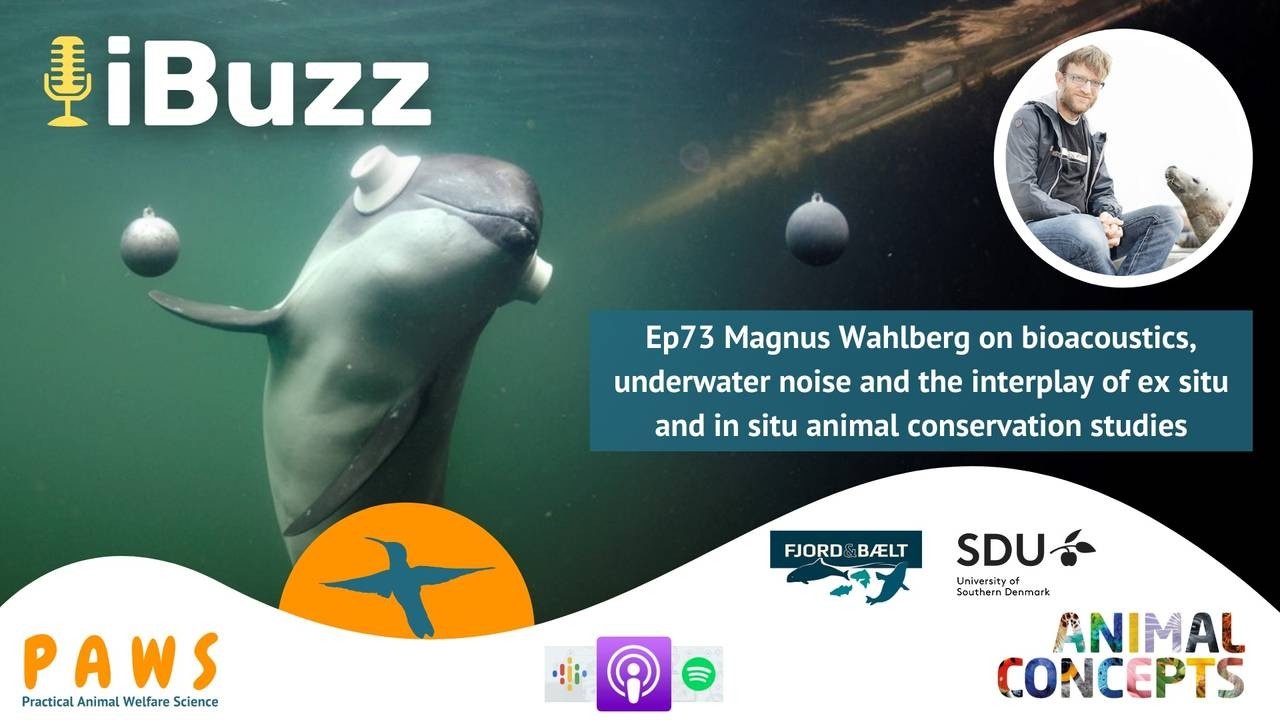Podcast Ep73 Magnus Wahlberg on bioacoustics, underwater noise and the interplay of ex situ and in situ animal conservation studies

Magnus Wahlberg started out as a physicist and mathematician, even though he was more interested in biology. The thought of experimenting with laboratory animals put him off, and he felt field biology may not be his cup of tea.
Ironically, his voluntary work on marine animal sounds drowned him in fieldwork. He credits his mentors for their stimulating curiosity-driven approach. He had a long emotional journey of self-realisation that studying animals in captivity helps us know more about wild animals and vice versa.
Listen as Magnus tells us about his interesting work on the bioacoustics of marine animals. With many exciting examples, he explains his focus on how animals hear. He explains how captive animals help us test techniques before running field testing on wild animals.
“Would you rather be deaf or blind?” asks Magnus as he explains with relatable analogies. When vision underwater is limited, one has to rely on hearing. He shares how water is a good conductor of sound, making it great for marine mammals to communicate information. He then goes on to explain how despite marine mammals sharing our physiology, they have adapted to living underwater.
Magnus explains that ‘sounds’ can be defined as ‘noise’ or ‘signal’ depending on perspectives. The focal sound will be a ‘signal’ and the sound interfering with this will be ‘noise’. It is difficult, he says, to measure whether a sound is agreeable to an animal or not, since “some sounds are loud but not regarded as noise as they are part of an animal’s repertoire…”
Discussing the effects of noise, Magnus explains that marine animals cope by either moving away or communicating louder (the Lombard effect). However, too much noise can in some cases result in injuries or even death. Singular effects can be ignored but cumulative effects can keep animals in constant stress causing greater harm.
Magnus shares that the construction of wind turbines is noisier than their operation. This issue does cause conflicts between conservation biologists and climate change scientists. Personally, Magnus believes in the positive effect of wind farms which restrict fisheries, creating reserves where biodiversity flourishes.
Magnus focuses on training teachers to inspire students to study natural sciences, believing in exciting individuals to be question-driven with an urge to answer these and solve problems creatively while knowing one’s subject.
Magnus’s facility does 3-lane work, firstly, establishing basic knowledge, secondly, developing gadgets for study and lastly, education and outreach to inspire students and the general public.
Magnus leaves us inspired, concluding with his personal experience with Loke- the great cormorant he tried to train but got trained himself by Loke instead!
Learn more about wind turbine noise and marine animals HERE, effects offshore wind farm and marine wildlife HERE, Gentoo Penguin reaction to underwater sounds HERE, vessel noise and dolphins HERE, and inspirational teaching methods HERE.
Listen on your favourite player or directly HERE
Become a member of PAWS now HERE

